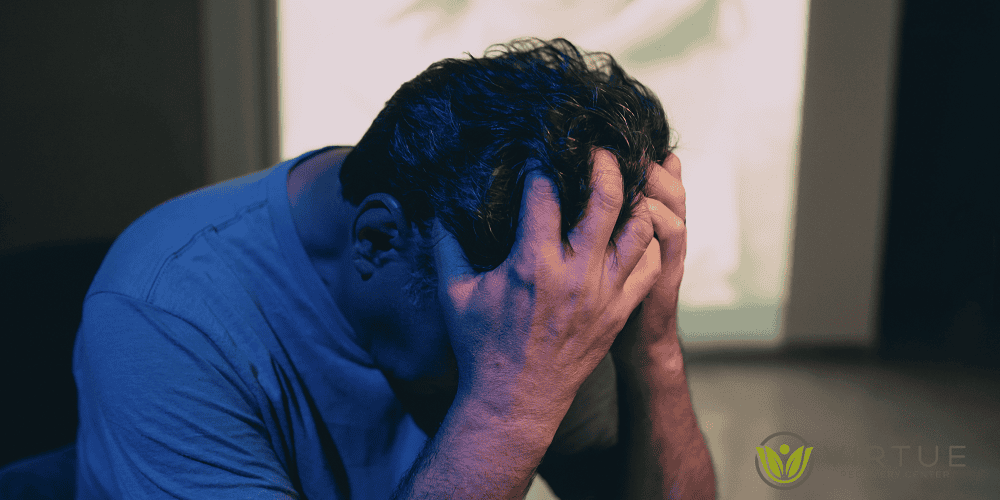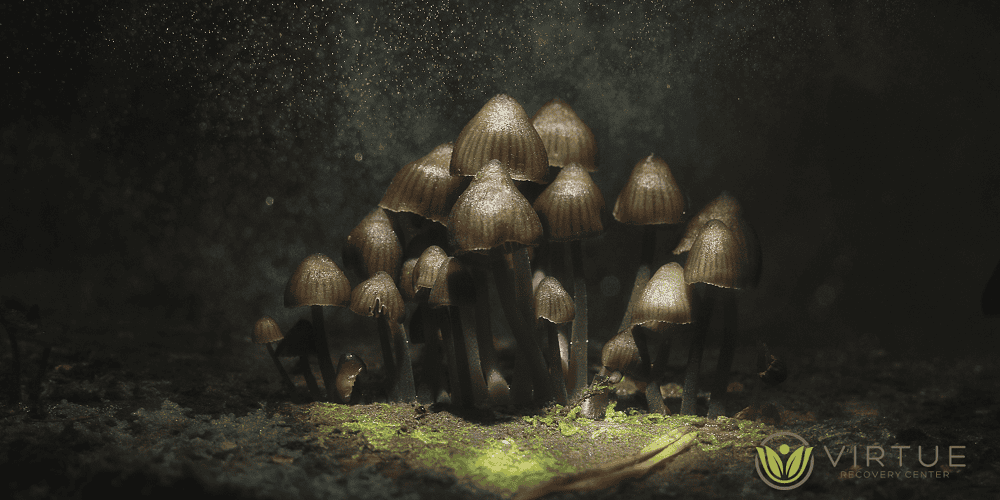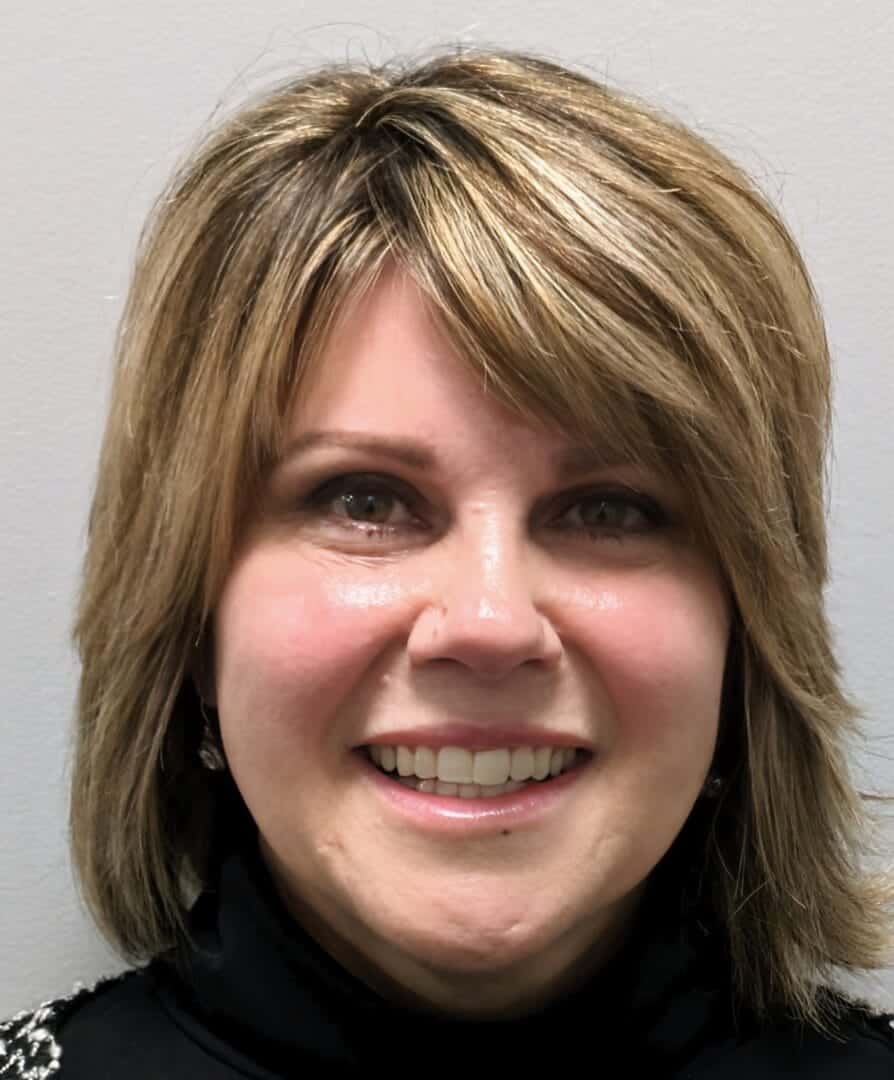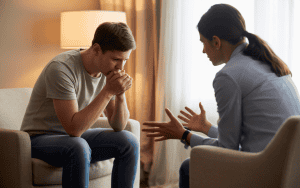Key Takeaways
-
Some people get anxious or panicky after taking psilocybin mushrooms, especially if they are already depressed.
-
A depression treatment program helps control these mental effects by providing structured therapy and psychiatric care.
-
CBT programs, motivational interviewing, and medical detox programs are some of the things that can help people who are emotionally unstable because they use psychedelics.
-
Art-based therapies can aid in recovery over time.
-
Integrated care that treats both depression and substance abuse leads to better results.
Introduction
People are becoming more interested in psilocybin mushrooms because they may help with mental health. Still, they can also cause severe anxiety, panic attacks, and emotional confusion, especially in people who have depression that hasn’t been diagnosed or treated. That’s when a professional depression treatment program is necessary. These programs are meant not only to stabilize mood but also fix the mental damage that harmful psychedelics can cause. These programs help people who are anxious because of psilocybin by using structured therapy, evidence-based tools, and emotional reintegration strategies.
What Makes People Anxious After Taking Psilocybin?
Psilocybin may improve mood or expand consciousness by affecting serotonin receptors in the brain. But if someone with an untreated mental illness or who is using it for fun takes it, the effects can be harmful. Some of the side effects are:
-
Paranoia
-
Fear of not being in charge
-
Distortions in sight and sound
-
Flashbacks of feelings
The National Institute on Drug Abuse (NIDA) says that hallucinogen-induced disorders can include long-lasting anxiety and flashbacks that last weeks or months after use (NIDA, 2023). If anxiety doesn’t go away after a “bad trip,” you may need to see a doctor.
How Does a Program for Treating Depression Deal with Anxiety Caused by Psychedelics?
 Once someone signs up for a depression treatment program, they get a complete psychiatric evaluation to determine the difference between anxiety caused by drugs and mood disorders that were already there. Then, treatment centers do the following:
Once someone signs up for a depression treatment program, they get a complete psychiatric evaluation to determine the difference between anxiety caused by drugs and mood disorders that were already there. Then, treatment centers do the following:
-
Checking your mood every day
-
Individual therapy
-
Managing medications (if needed)
-
Help with sleep and nutrition.
These programs often overlap with drug abuse treatment programs, mainly when clients have used more than one drug or have a history of self-medicating.
What Part Does CBT Play in Helping People with Psilocybin Anxiety?
Cognitive Behavioral Therapy (CBT) is one of the best ways to help with anxiety caused by psychedelics. A structured CBT program helps clients:
-
Reframe fears that don’t make sense
-
Work through the trauma that comes from hallucinations
-
Learn how to ground yourself
-
Rebuild your ability to control your emotions
According to the National Institute of Mental Health, CBT is a first-line treatment for both depression and anxiety, making it especially helpful for clients recovering from psilocybin-related emotional episodes.
Can Motivational Interviewing Help People Stick with Treatment?
Yes, motivational interviewing (MI) is especially useful for people who are unsure about their recovery or wish they had never used psilocybin. This method is focused on the client:
-
Increases motivation from within
-
Encourages open talk about being unsure
-
Sets goals that are possible for stabilizing the mood
-
Makes people more committed to treatment
MI is often used in programs to help people with substance abuse, but it is also beneficial for people who are trying to get over depression when they feel ashamed or don’t want to do the work.
Do Some Clients Need Medical Detox After Using Psilocybin or Multiple Drugs?
Psilocybin itself doesn’t usually need to be detoxed, but a lot of clients use it with other drugs, like alcohol, cannabis, or antidepressants, especially SSRIs. When the following things happen, a medical detox program is essential:
-
Symptoms of withdrawal from other drugs show up
-
Panic attacks or psychosis get worse
-
Sleep and appetite get worse
-
There are thoughts of suicide
The Substance Abuse and Mental Health Services Administration (SAMHSA) recommends that individuals facing complex withdrawal symptoms enter supervised detox to ensure a safe and effective transition into long-term treatment.
What Does Art Therapy Do to Help People Heal?
Creative expression is one unique way to help people who psychedelics have hurt. Art heals is not just a theory; it has been proven in clinical settings. People can externalize their overwhelming feelings through painting, drawing, or making collages.
-
Recreate and change the way you see traumatic images from trips
-
Use non-verbal healing methods
-
Increase your self-awareness and confidence
Most depression therapy programs now include expressive arts as part of a whole-person treatment plan, especially for people who are dealing with the effects of psychedelics.
What Happens If the Client Has More Than One Diagnosis?
In a lot of cases, the client may already have been diagnosed with major depression or generalized anxiety disorder, and psilocybin made those problems worse. Dual-diagnosis programs combine mental health care and addiction recovery for these people. These programs put together:
-
Managing medications to stabilize mood
-
Weekly therapy for trauma and mood management
-
Group support and education about relapses
-
Coaching for a healthy lifestyle for the long term
Dual-diagnosis care makes sure that anxiety caused by psilocybin is not just hidden, but fully understood and dealt with at its source.
Conclusion
Not everyone can benefit from psychedelics like psilocybin. When misused or without medical supervision, they can cause severe mental problems, especially in people who are already depressed and not getting treatment. A complete depression treatment program can, thankfully, undo these effects and bring emotional balance back. Every part, from CBT programs to motivational interviewing, works together to help clients improve and maintain stability. Don’t wait if you or someone you know is having trouble with anxiety or depression after using psychedelics. At Virtue Recovery Chandler, our trauma-informed approach and integrated substance abuse treatment programs can help you see things more clearly and give you hope again. Dial 866-338-5779 and get in touch today to start a safe, personalized healing journey.
FAQs
Can psilocybin make someone anxious or panicky for a long time?
Yes. Some people have anxiety, flashbacks, or panic attacks that last for weeks after using.
Do you need therapy after a bad trip?
Therapy as part of a depression treatment program is highly recommended if symptoms last or get in the way of daily life.
What is the first step to getting better?
A complete psychiatric evaluation to see if detox or mood stabilization is the best first step.
Can art help with anxiety?
Of course. Expressive therapies help people deal with things they can’t put into words yet.
Will I need to take medicine?
Not always. Treatment plans are tailored to each individual, and medication is only recommended when medically necessary.
Can Antidepressant Withdrawal Symptoms Be Managed During Psilocybin-Induced Anxiety Treatment?
Navigating psilocybin-induced anxiety treatment requires understanding antidepressant withdrawal effects. Patients should engage with healthcare professionals to tailor a strategy that minimizes discomfort. Supportive therapies, gradual tapering of medication, and monitoring can significantly enhance the experience, ensuring a safer transition while addressing both anxiety and withdrawal challenges effectively.
Resources & Citations
-
National Institute on Drug Abuse. “Hallucinogens DrugFacts.” NIDA, 2023, http://www.nida.nih.gov/publications/drugfacts/hallucinogens
-
National Institute of Mental Health. “Depression.” NIMH, 2023, http://www.nimh.nih.gov/health/topics/depression
-
Substance Abuse and Mental Health Services Administration. “Treatment for Substance Use Disorders.” SAMHSA, 2023, http://www.samhsa.gov/find-help/treatment








